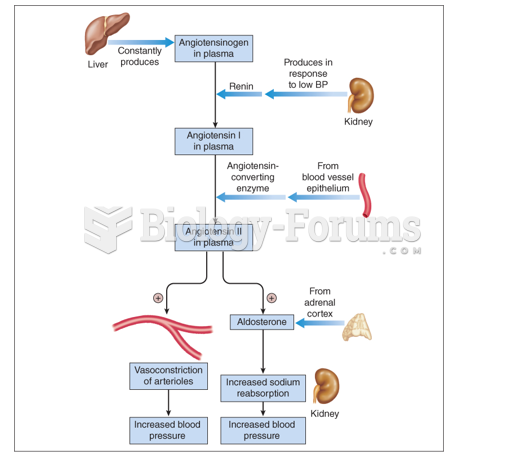|
|
|
The FDA recognizes 118 routes of administration.
Human kidneys will clean about 1 million gallons of blood in an average lifetime.
Children with strabismus (crossed eyes) can be treated. They are not able to outgrow this condition on their own, but with help, it can be more easily corrected at a younger age. It is important for infants to have eye examinations as early as possible in their development and then another at age 2 years.
Blood in the urine can be a sign of a kidney stone, glomerulonephritis, or other kidney problems.
The most dangerous mercury compound, dimethyl mercury, is so toxic that even a few microliters spilled on the skin can cause death. Mercury has been shown to accumulate in higher amounts in the following types of fish than other types: swordfish, shark, mackerel, tilefish, crab, and tuna.







